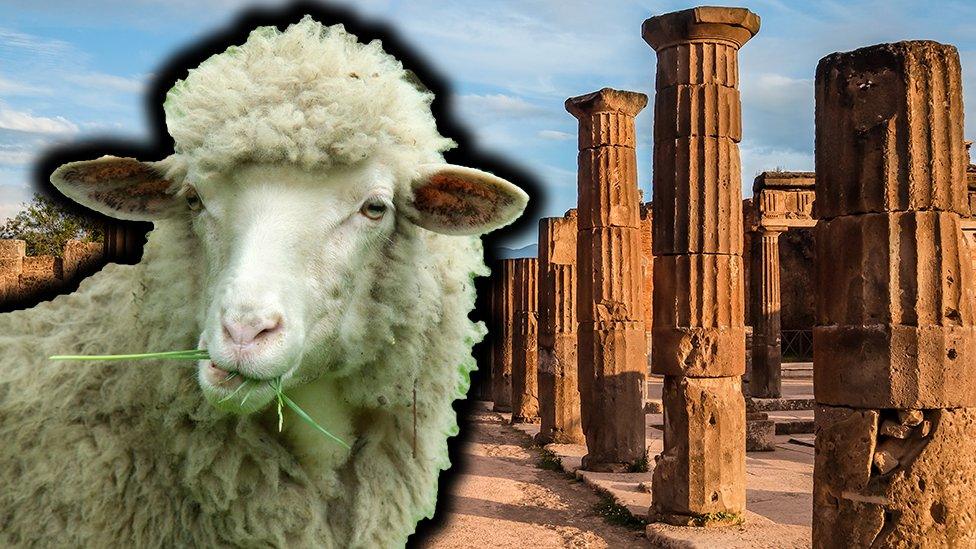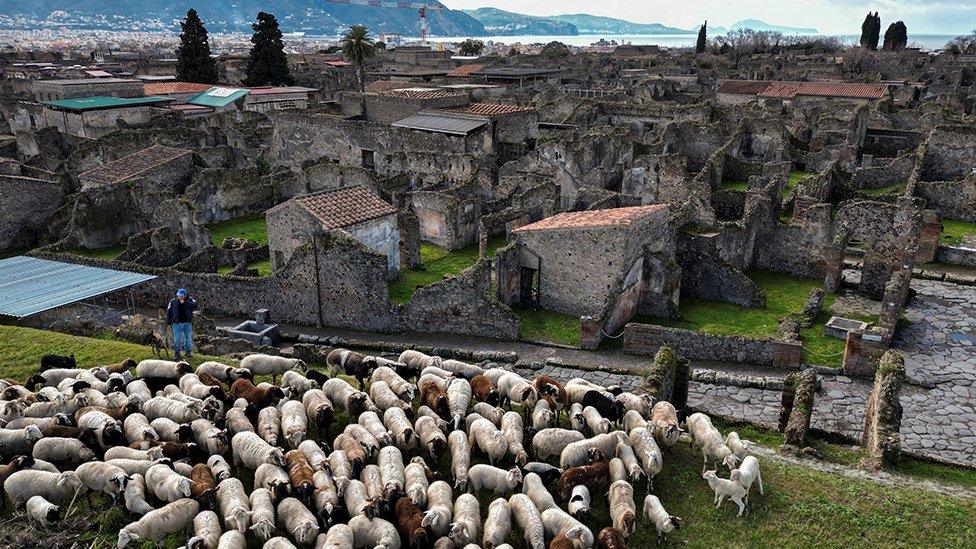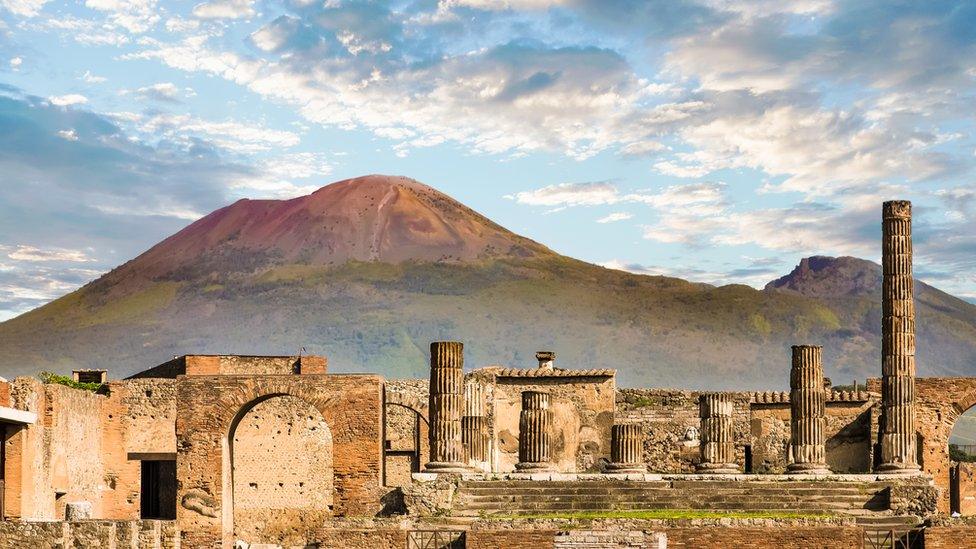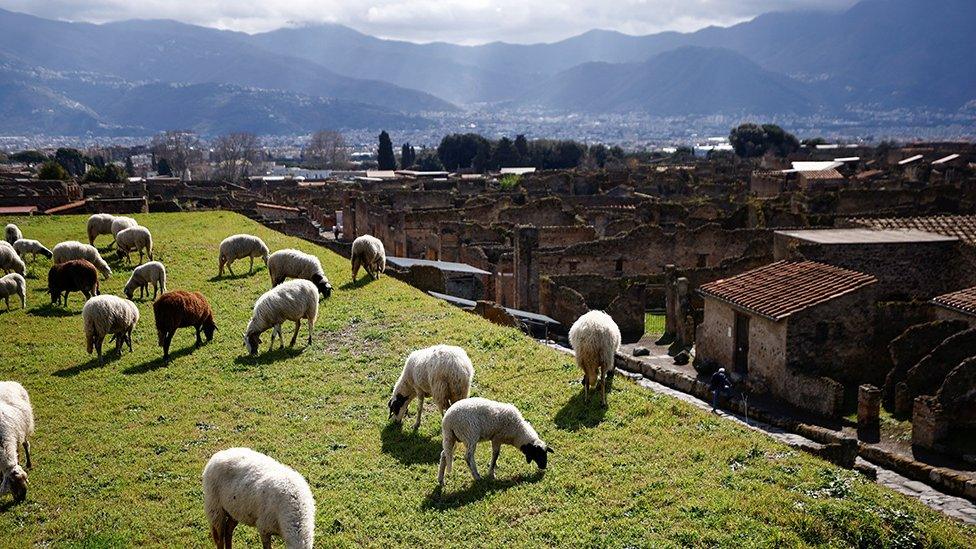Pompeii: Sheep eat grass to protect ancient ruins
- Published
- comments

Baaaa... these sheep have a special mission in Pompeii
Ewe will never guess who has the special job of cutting the grass in Pompeii...
It's sheep! A flock of sheep munch on the grass to make sure the ancient Pompeii ruins are kept in good condition.
When grass and plants grow inside of ancient ruins, it can cause damage to the structures.
Luckily, these fluffy friends are up for looking after the place.

The sheep have been hard at working looking after the grounds
What happened at Pompeii?
Pompeii was a part of the ancient Roman Empire, which spanned across large amounts of Western Europe and North Africa. It's centre was in Rome, in Italy.
In 79 A.D Mount Vesuvius, a nearby volcano erupted, covering the then busy city of Pompeii with ash.
The ash preserved the homes, objects and even people who had lived there.
Since the 1700s, archaeologists have dug and uncovered different parts of Pompeii to find out more about life in the city through excavation work.
Tourists come from all over the world to visit Pompeii and walk through the preserved ancient town.

You can see the ancient ruins of Pompeii and the volcano, Mount Vesuvius behind it
Below the Earth's core there's a red-hot liquid rock called magma.
Volcanoes are openings or vents in the earth's crust, and they can be underwater or on land.
When pressure builds up under the surface, magma comes out of the volcano, causing an eruption.
The Big Question: Why do volcanoes actually erupt?
Special grass-cutters
This is where the sheep come in! Because the site is so historically important, people want to keep the buildings in good condition.
Instead of having to get gardeners on the case, a flock of local sheep come and munch on the grass.
Gabriel Zuchtriegel, the director at the Pompeii Archaeological park, said getting the sheep to join in was a "sustainable approach".
150 sheep have been sent to a northern area of the city, that tourists are not currently allowed to visit.

